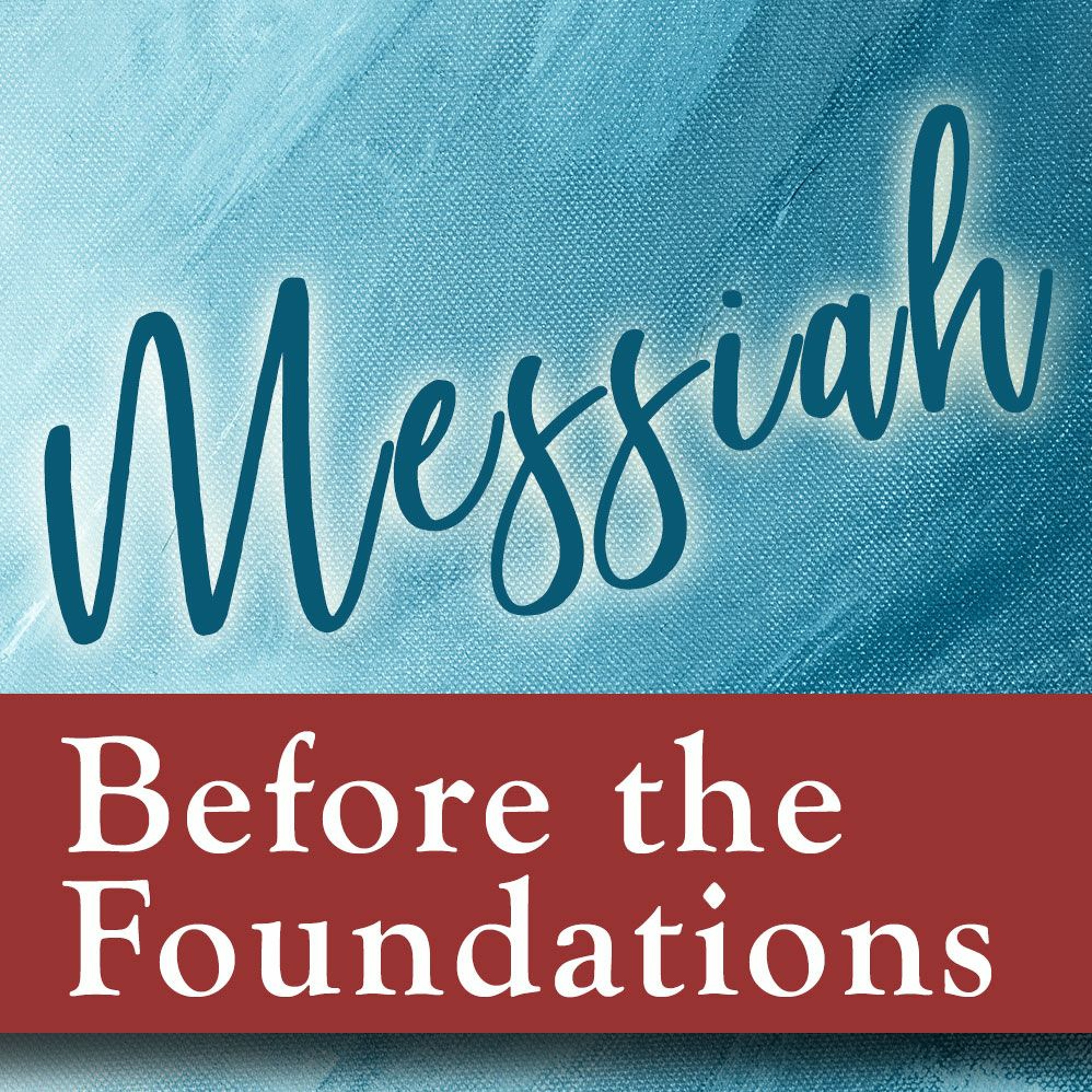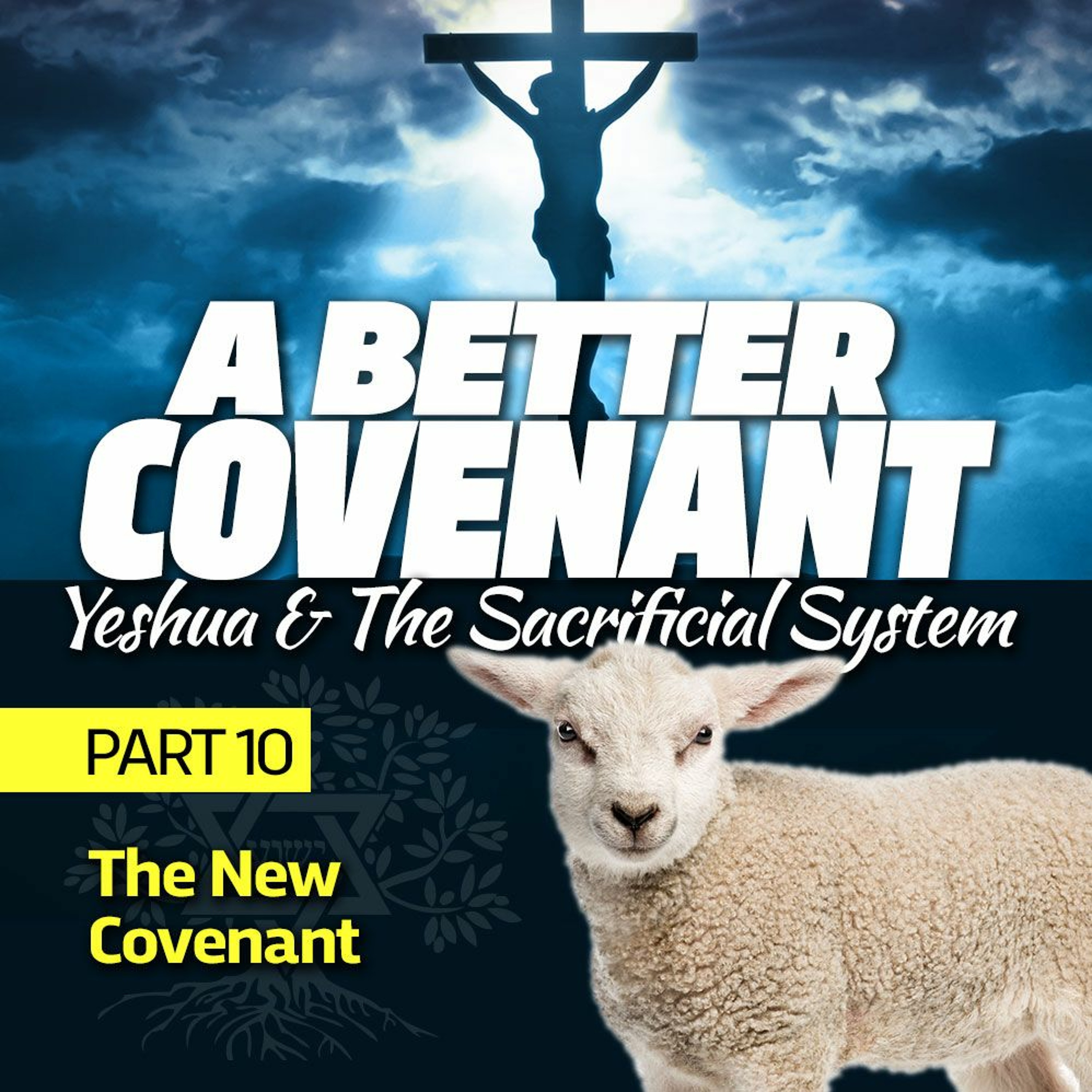Episode Transcript
[00:00:00] If you have vision problems, you know what it's like to wake up to a blurry world. You look around and you can't make heads or tails of the world around you. You may be able to see vague shapes or points of light, but it's like being in an intense fog. However, if you're fortunate enough to benefit from corrective lenses, then once you grab your glasses or put your contacts in, things start to come into focus and you're able to enjoy a world of clarity. How does this relate to Moses, Aaron, Miriam, and a group of men filled with the Holy Spirit? Stick with me to find out in this week's five Minute Torah Shalom and Blessings from Shalom Macon, the place where disciples of Yeshua learn, connect and grow. I'm Darin, and before I get into the five minutes of my five Minute Torah commentary, let's cover a few quick facts about this week's Torah portion. This week we are studying the 36 portion, the portion of Maha' Olodka, numbers 8, 1, 12, 15, and here are the three things that you need to know about it. Number one lighting the menorah Igniting disciples the Torah portion Baha' alotcha, which means when you kindle, begins with God's instructions to Aaron regarding the lighting of the menorah. In the Mishkan, or tabernacle, Aaron is commanded to set up and light the seven lamps of the menorah so that they shine forward, illuminating the area in front of it. This act of kindling the menorah is rich with symbolism with with Rashi comparing the lighting of the menorah to discipleship Just as Aaron needed to hold the flame to the wick until the candle burned on its own, rather than merely touching it with the flame and expecting it to immediately ignite, we must make disciples in the same way. Discipleship takes investment. Discipleship isn't a confession or a doctrinal statement or a church membership. Rather, discipleship is a mature person of faith investing into a disciple and until that disciple can stand on their own spiritually holding onto him until his spiritual flame rises on its own. Number two Kvetching and quail the dangers of discontentment in our current Torah portion, we also learn about the Israelites dissatisfaction with their diet, a chronic problem that hasn't changed in any period or culture since the dawn of time. However, Israel longed for the types of food they had in Egypt, particularly meat, and complained about their reliance on manna. Their complaints reached Moses, who became distressed by the burden of leading a discontented people weary of Their coveting. God promised to provide them meat, so a strong wind brought up quail from the sea covering the camp. However, when the people are still eating the quail, God's anger is kindled against the ungrateful, resulting in a severe plague. Through this sad event we have the opportunity to learn the dangers of discontentment and choose a and attitude of gratitude. Number three Miriam and Aaron Challenging Moses we also learn about Miriam and Aaron challenging Moses authority and criticizing him for marrying a cushite woman. They assert that God has also spoken through them, implying that Moses should not hold a superior position to them. God responds swiftly, calling Moses, Aaron and Miriam to the tent of Meeting. He affirms Moses unparalleled prophetic status, speaking with him quote face to face unlike other prophets. And as a consequence of their challenge, Miriam is struck with zara, or biblical leprosy, turning her skin white as snow. Aaron pleads with Moses who intercedes on her behalf. And after Moses prayer, God instructs that Miriam be confined outside the camp for seven days before being healed. This is a perfect example of how discontentment comparison to others and and jealousy nearly destroyed a family. May it be a lesson to us all. Are you a disciple of Yeshua? There are a lot of people who say they are, but when it comes down to it, they really don't even know what it means to be a disciple. Why? Because discipleship is a concept unique to Judaism. It's an intimate relationship between a rabbi and his student. Yeshua called 12 men to be in his inner circle of discipleship, and those 12 men changed the world.
[00:04:17] What did they know about being a disciple that we don't? I wrestled with this question when I wrote my book the Four Responsibilities of a Disciple. There were a ton of books already written on how to make disciples, but I wanted to know what it meant to be a disciple because it seems that all of these disciples that were being made in our day really weren't having an impact on the world around them like they should. I found out that there were four responsibilities every disciple should know and that when implemented, living out these four responsibilities has the potential to change the world. If you want to know what it means to be a true disciple of our master Yeshua, then check out my book the Four Responsibilities of a Disciple, using the link below. Just another quick word about my books. If you live outside of the United States and think you can only pick up a copy of my books here in the US Then think again. They are also available in the uk, Germany, France, Spain, Italy, Australia, Japan, Mexico, India and other countries countries and my book the Four Responsibilities of a Disciple is also available in Spanish. If Spanish is your native tongue, just check out Amazon to see what's available where you live this week's Torah commentary is called A Needle in a Haystack and comes from my book 5 Minute Torah, Volume 3. Our Torah portion begins by describing several events, including the inauguration of the Levites, the laws of Pesach Shanei, the second Passover, how the physical manifestation of the cloud by day and fire by night guided the Israelites in the their journeys, the instructions regarding the silver trumpets, and the departure of Jethro. Then we hear how the children of Israel complain to the point of even looking back at Egypt with nostalgia. Their grumblings and ungrateful attitudes invoke anger from the Redeemer, causing the death of many through a plague that struck while they gorged themselves on the meat of quails amid the harsh judgments measured out to the children of Israel for their complaining and bickering, A sub theme runs through this week's Torah portion like a golden thread woven into the garments of the Cohen Gadol, the high priest. It begins when the Lord tells Moses that he will take a portion of the spirit given to him and distribute it among a select group of Israelite elders. Then the LORD said to Moses, gather for me 70 men of the elders of Israel, whom you know to be the elders of the people and officers over them, and bring them to the tent of meeting and let them take their stand there with you, and I will come down and talk with you there and I will take some of the spirit that is on you and put it on them, and they shall bear the burden of the people with you, so that you may not bear it yourself alone. Numbers 11:16, 17 rather than simply placing the Holy Spirit upon these men, the Lord withheld some of Moses portion to be given to them. Moses could have easily balked at this idea. However, he didn't complain. He was content with God's plan, even if it meant reducing the portion of what was given to him. He was thankful that God was going to give to others what was until that time, exclusively his. A second theme emerges when the Spirit is actually given to the elders. When Moses assembles the elders so that the spirit could rest on them. Two of them for whatever reason, did not come, but remained in the camp. When the Spirit was measured out to them. The two in the camp began to prophesy along with the others who were with Moses. But when they did, they were immediately met with resistance. A youth runs to tattle and Joshua becomes indignant, demanding that they be stopped immediately. Moses, however, disagrees and says, are you jealous for my sake? Would that all the Lord's people were prophets, that the LORD would put his spirit on them. Numbers 11:29 Rather than becoming jealous, Moses sees the good in the situation and shares his perspective with those who are viewing the event negatively. The last incident involves the criticism of Moses by his siblings. The Lord takes this personally and strikes Miriam with zara, or biblical leprosy. Instead of becoming indignant and gloating in the punishment of his sister, like most siblings would do, Moses pleads with the Lord to deliver her from from her sentence, and Moses cried to the Lord, oh God, please heal her. Please. Numbers 12:13 Although Moses seemed to have had an even better attitude than God in this situation, the Lord in his infinite wisdom created this opportunity to show the greatness of Moses, the one who was very meek, more than all people who were on the face of the earth. Numbers 12:3 Sometimes finding the strength to turn a negative situation into a positive one can be like trying to find a needle in a haystack. Everything is a blur and the things we are looking for can't be found. All we can see is the negative and how all the cards seem to be stacked against us. However, if we look hard enough, we can find the strength to see our circumstances through a different lens.
[00:09:22] It's like putting on a pair of glasses or contact lenses. When we recognize that everything God does is ultimately for the good, and that each of life's experiences is intended to shape us into the man or woman God intends, then everything comes into focus and life is much more bearable. Moses is a great example of this ability to recognize God at work behind the scenes. May this example inspire us to a life of humility and service to others. Seek seeing the good God is doing on our behalf once again. If you haven't checked out my video series called Per Kevot and the Teachings of Yeshua, then you really missing out. You're guaranteed to learn something and it will revolutionize the way you understand the teachings of Yeshua. Just click on the link right here to get started.



